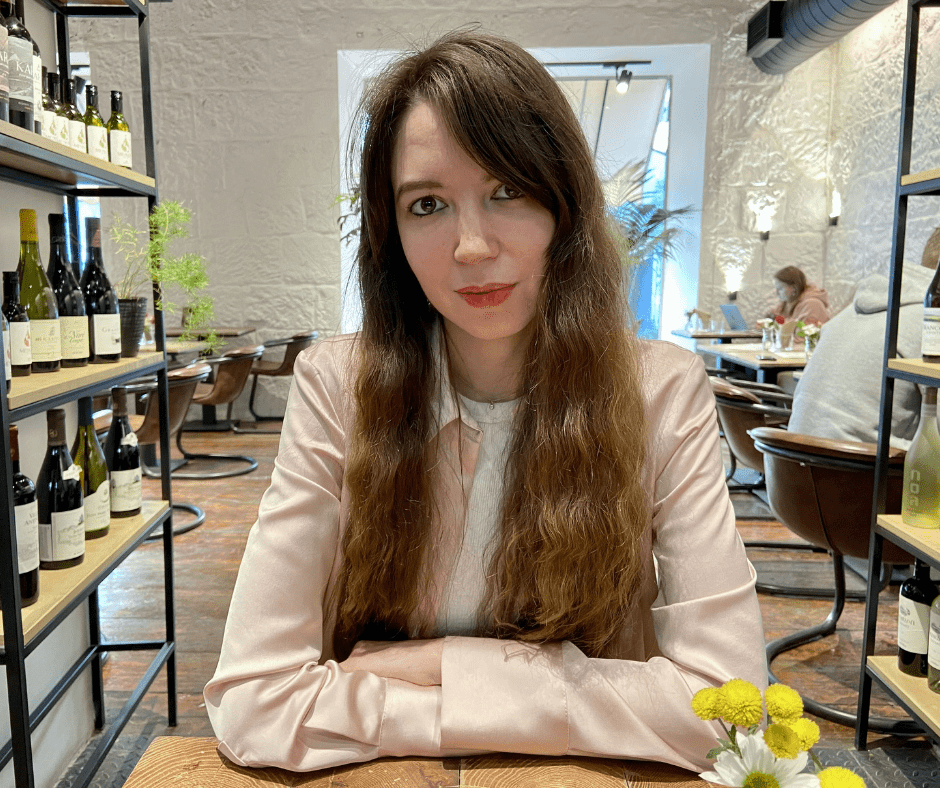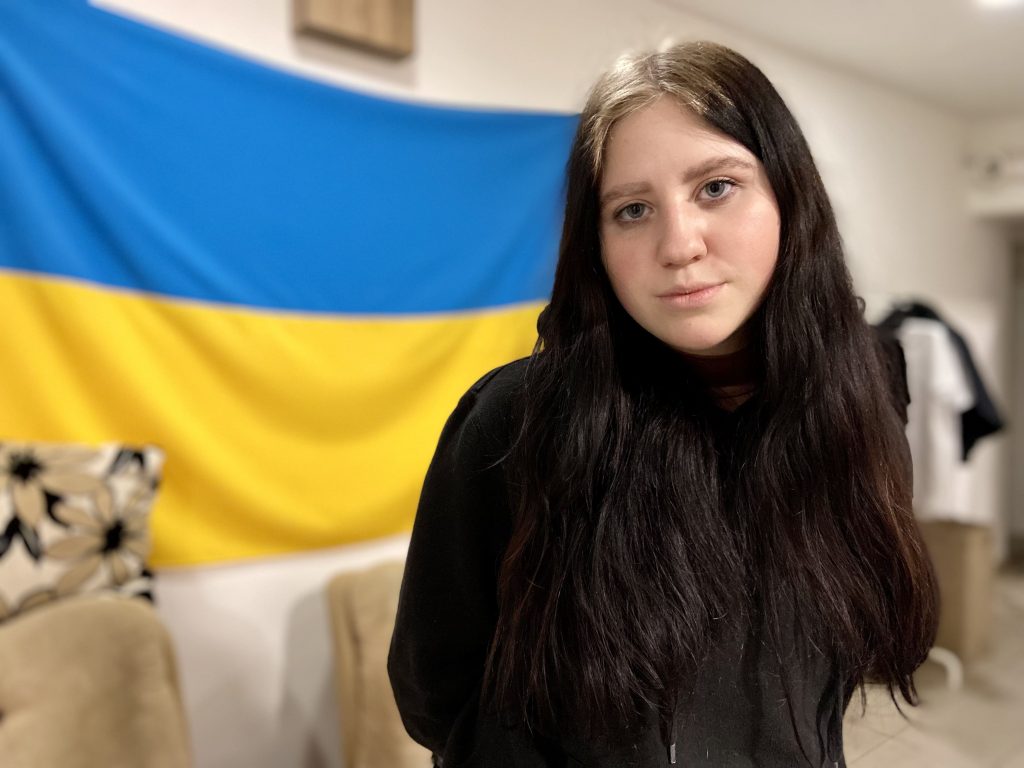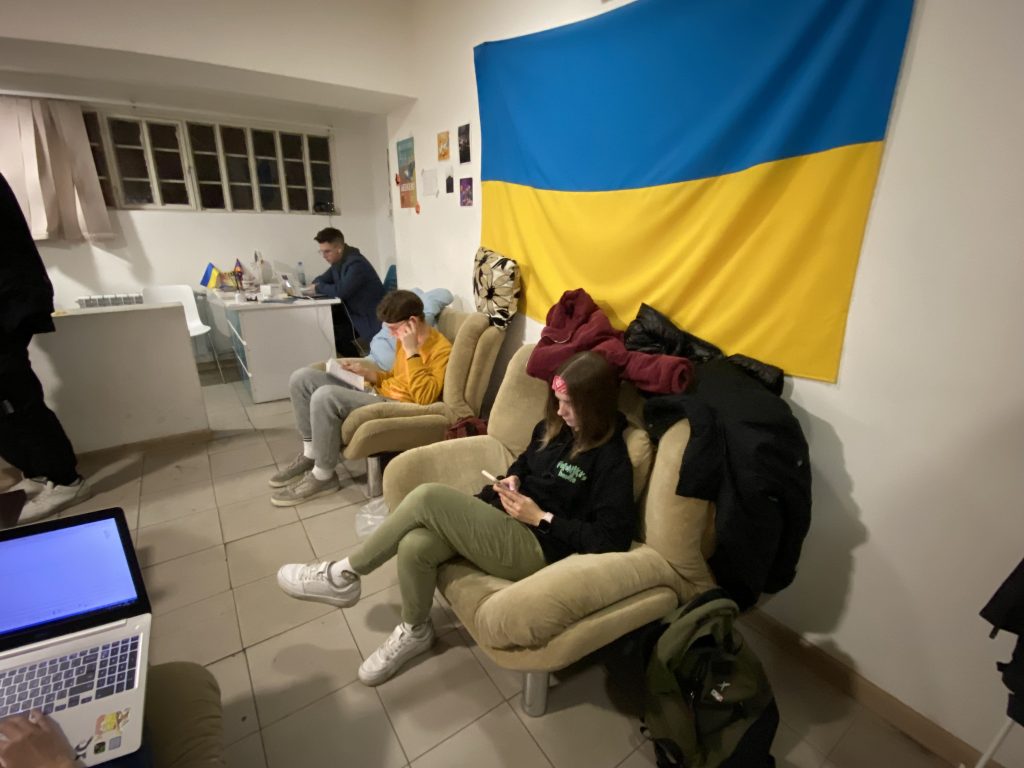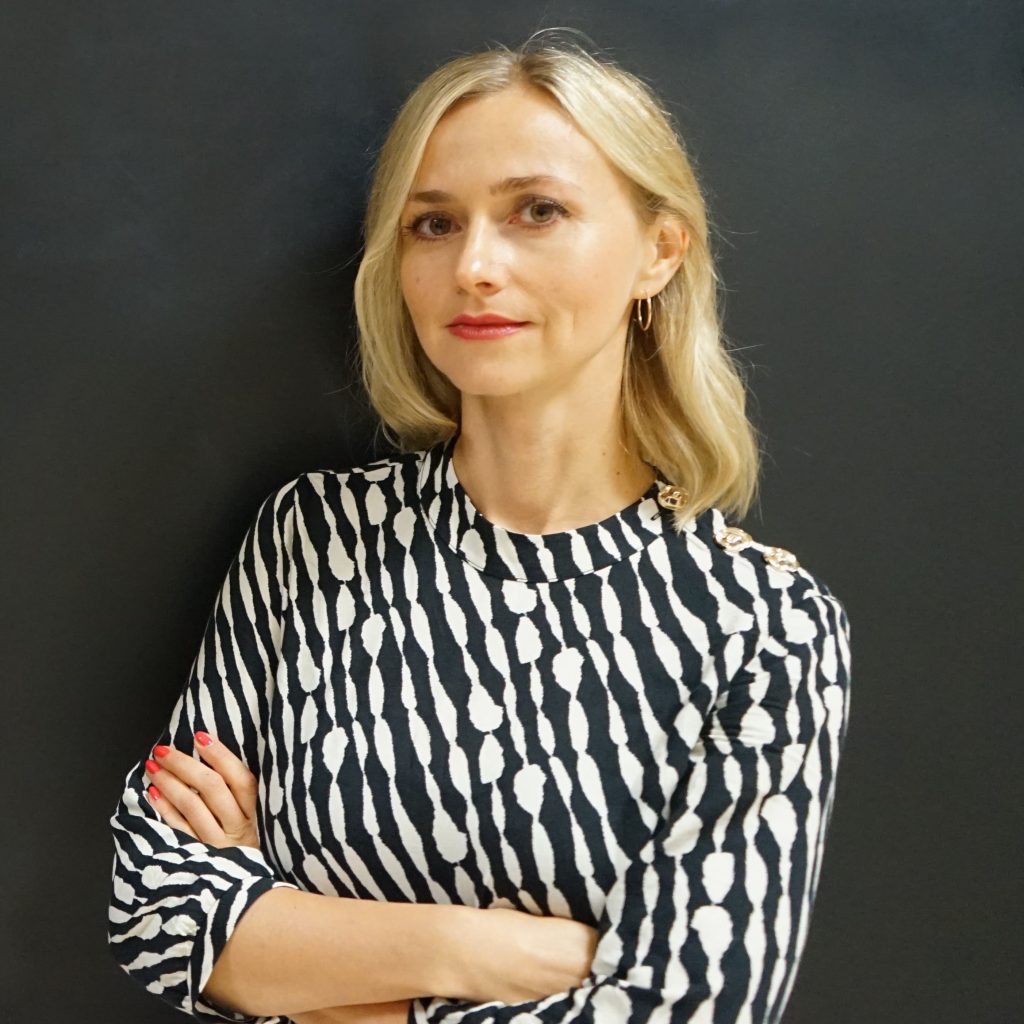A Russian oppositionist founds an aid organization for refugees from Ukraine and Nagorno-Karabakh in Armenia’s capital, Yerevan, creating a place of hope and anticipation for homecoming for three nations.
by Ira Peter
“When the war broke out, we weren’t even allowed to call it a war,” says Vasilisa Borzova. That, she notes, was a red line for her: she understood she would be unable to continue her political activity in Russia. I meet the 24-year-old in a café in the center of Yerevan at the end of November. The Muscovite has been living here since March. In Russia, she used to organize political events promoting an open exchange of opinions all across the country: they held discussion groups and film screenings, which were attended mainly by young people. “In Putin’s Russia, people are afraid to talk about politics, even within families,” and she wanted to change that. From February 24, that no longer seemed possible to Vasilisa. In the beginning, she still went to demonstrations. But the number of protesters was decreasing daily. Some were arrested, others stayed at home out of fear. Vasilisa, who studies political philosophy, realized: “At least abroad I can do something, and here, unfortunately, I can’t do anything.”

When she arrived in Armenia, she “knew nothing about the country except for some things about the Nagorno-Karabakh conflict. I was unfamiliar with the culture; I thought I’d just stay a week and then leave.” But Vasilisa was so overwhelmed by the hospitality of Armenians that she stayed. The young woman quickly made friends, as lots of Russians were arriving in the South Caucasian country around the same time as her, and these people, like her, were against the war: “Nine out of ten had come as they were against Putin’s politics, not because of the sanctions.” She met them at protests, of which there were many in Armenia’s capital in spring. But people seemed lost to her “since they didn’t know how to support.” So the 24-year-old founded “Ethos”, an organization that initially collected humanitarian aid only for the people from Ukraine. About 4,000 refugees from Ukraine arrived in Armenia during the first weeks of the war. Some of them started coming to Ethos’s collection centers in Yerevan. So did Maria, an 18-year-old woman from Mariupol, whom I met the following day in the Ethos office.

Maria had heard about the organization in a bank. She had left all her bank cards in Ukraine due to the flight and could not withdraw cash. The bank employee recommended visiting Ethos, where she could transfer money to a card of the volunteers and get cash from them. It didn’t end with that one visit. “I was also here at the first session for psychological help,” she says, holding in her arms the kitten named Odessa, which lives in the office manned around the clock. The main problem in Yerevan for her in the initial period was making social contacts. “Everyone misses that when you’re new to a city, and it’s very depressing.” Maria claims that in Armenia, unlike Europe, there is no language barrier as many speak Russian, but still, the beginning was hard.
In the meantime, Maria is part of the Ethos team and assists with the distribution of clothing, hygiene articles, and medication. These tasks and the interaction with her colleagues help her against loneliness. Working with Russians is not a problem, she says: “Even though my hometown suffered the most in Ukraine, I can still tell whether the person understands what’s happening or he/she is fully under the influence of the Russian propaganda.” Although Ukrainians often use phrases like “A good Russian is a dead Russian”, she looks first at what people think and do. “I am not against Russians who love their country, but I am against those who worship their system,” she adds.
At Ethos, Russians have also been seeking help since the mobilization in September 2022, and there are now twice as many refugees from Nagorno-Karabakh as from Ukraine. Vasilisa explains: “With time, we learned what the situation was here in Armenia, and that the war in this country had been going on for thirty years. As guests of this country, which welcomed us with much warmth, we didn’t want to close our eyes to it.” Therefore, soon Ethos started offering its help to the Armenian people from the disputed region between Armenia and Azerbaijan. Especially in the mornings, several families from Nagorno-Karabakh now often come at the same time to the small rooms of the organization, which is mostly financed by donations from Russians.

Most, like 62-year-old Grisha, pick up medicines for free or seek advice on legal issues. He and his family moved to Yerevan in 2020 from Hadrut in southern Artsakh, as Nagorno-Karabakh is also known. “Our house was bombed, the Azerbaijanis took everything from us. There was no place to stay,” he says. At first, they lived in emergency shelters, for a while in a kindergarten. Now with his wife, they have found an apartment. However, there is hardly any financial support from the state. They recently received 40,000 Armenian drams, which is slightly less than 100 euros. Even in Armenia, this is not worth much. This payment is to be repeated for refugees from Nagorno-Karabakh. But when – he does not know. That’s why he will continue seeking help from Ethos. “These are good people,” he says. At the same time, he also realizes that some Armenians have a strained relationship with Ukraine and Russia: from their point of view, both countries had abandoned Armenia in 2020 during the 44-day war against Azerbaijan.
Vasilisa understands this attitude, but so far she has only come across very benevolent people in Armenia. She is now also learning Armenian. “At first, we thought the war would end soon, and we would be able to go back. But now that seems unlikely,” the young woman says. Maria is also adjusting to her long-term stay in Armenia: “It’s the country where I have to find my way around and start over like a phoenix.” Planning her life, however, no longer makes sense for the Ukrainian since February 24. All she can do is hope that she will return to her homeland, as does Grisha, who would like to return to Hadrut soon.
This article was published within the frames of “Correspondents in Conflict” Project,
implemented by Yerevan Press Club and Deutsche Gesellschaft e. V. The Project is
funded by the German Federal Foreign Office within the “Eastern Partnership Program”.
The contents of this article are the sole responsibility of the implementing partners and can in
no way be taken to reflect the views of the Federal Foreign Office. #civilsocietycooperation
 Ira Peter was born in the Soviet Republic of Kazakhstan and has lived in Germany since 1992. She studied literature and psychology and currently works as a freelance journalist and marketing consultant in Mannheim. Since 2017 she has been dealing with Russian-German topics as an author and podcaster (Steppenkinder).
Ira Peter was born in the Soviet Republic of Kazakhstan and has lived in Germany since 1992. She studied literature and psychology and currently works as a freelance journalist and marketing consultant in Mannheim. Since 2017 she has been dealing with Russian-German topics as an author and podcaster (Steppenkinder).












